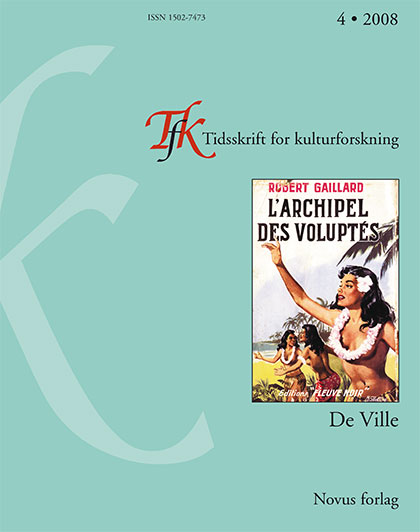Sammendrag
With the rise of social anthropology in the immediate post-war period, museum ethnography became obsolete; very soon it was almost completely forgotten. In this article, the works of some of the most prominent Norwegian explorers of the older school are presented. Their theoretical and ideological orientation is seen as inscribed in a set of practical operations and institutional arrangements. In particular, the degree of humanness of exotic others, even as experienced during personal encounters in the field, is shown to have been determined in part by practices of travelling, collecting and writing. The inferiority of "savage" and "barbarian" peoples was an impression produced not only by abstract theories of an evolutionist or diffusionist kind, but also by the voyage of discovery, the writing of travelogues, and the comparison of museum specimens. Conversely, a feeling for the equality of these others first developed among natural scientists whose expeditions, stuck in the arctic wilderness for long periods of time, became dependent upon the help and advice of local populations. As the voyage of discovery involuntarily turned into a fieldwork situation with many elements of participant observation, the travelogue was typically replaced by literary forms belonging to the modern monograph, and the search for racial origins by the search for contextual interpretations of a predominantly functionalist kind. In important respects modern social anthropology was anticipated, as early as the 1890s, by biologists and oceanographers gone astray.
With the advent of the aeroplane and the radio, the age of heroic discovery was largely over. Though travelling to remote and inhospitable places still could be the subject of popular books, reports on life in the wilderness was no longer part of the academic study of culture. However, exploiting the widespread fascination for the old narrative of adventure and exploration, invoking various scientific motives as pretexts, bestselling authors managed to create an afterlife for a kind of ethnography that had been emptied of serious content long ago.

